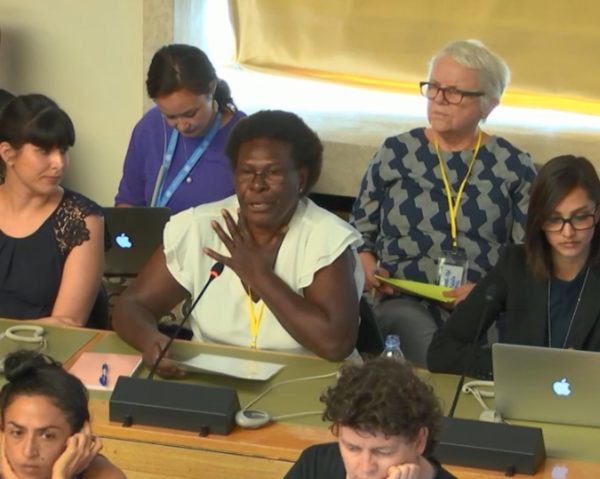Australia has one of the largest global mining footprints in the world with Australian companies currently operating many fossil fuel projects in low income countries.
This is only set to grow. In the coming years, publicly-listed Australian companies are planning to increase the number of operating coal, oil and gas projects in low income countries fourfold, from 35 to 150.
ASX companies’ operating and planned fossil fuel projects are heavily concentrated in Papua New Guinea, South Africa, and Indonesia. There is insufficient government regulation of the activities of the Australian fossil fuel industry overseas, and recent research into the PNG LNG project shows just why this is so concerning.
The PNG LNG project in Papua New Guinea is a $US19 billion Liquified Natural Gas project that is currently PNG’s largest extractives project, and is expected to run for 30 years [1]. ASX-listed companies Oil Search and Santos are major joint venture partners in the project. The project was also the recipient of an AUD $500 million loan from an Australian Government agency, the Export Finance and Insurance Corporation (Efic), despite major concerns raised by organisations including Jubilee Australia about the human rights risks involved in the project [2]. Eighty per cent of this loan came from Efic’s National Interest Account as directed by Trade Minister at the time, Simon Crean, who himself was authorized by the Australian cabinet [3].
According to recent research by Jubilee Australia, the PNG LNG project, which was promoted by industry and government alike as a development opportunity for PNG, shows that potential economic benefits had been inflated by proponents of the project, and in fact the project has left the people of PNG worse off on almost every measure of economic welfare [4]. The research also found that a build-up of armed conflict and violence in Hela Province was linked to the project, and that there is currently high risk of escalation [5].

Dr. Ruth Saovana Spriggs testifying to the CEDAW Committee in July 2018.
Women in Papua New Guinea say they have had to bear the brunt of the adverse impacts. According to local women’s organisations in their shadow report to the CEDAW Committee in June 2018, the PNG LNG project has undermined women’s access to and control over land, excluded women from decision-making, and diminished access to justice and services for women who are victims of violence [6]. Local women also report an increase in gender-based violence in the region.
In testimony to the CEDAW Committee in July 2018, Dr. Ruth Saovana Spriggs, a Bougainvillean academic, researcher and activist, spoke of the impact of large-scale Extractive Industry Projects on women in PNG:
The Australian Government finances large-scale Extractive Industry Projects in PNG, which systematically exclude women and entrench male monopoly over decision-making and benefit flows. Women lose access to economic resources and status, increasing their vulnerability to violence.
Highly profitable, Australian Joint Venture Projects operating in regions with pre-existing high levels and extreme forms of gender-based violence and armed conflict are contributing to increased impunity for perpetrators and reduced access to justice.
From the sites of coal, oil and gas extraction to the places where natural disasters are becoming more ferocious and frequent, it is women who bear the brunt of the adverse consequences of the fossil fuel industry.
That’s why we’re calling on the Government to stop funding fossil fuel projects, and ensure Australian companies uphold women’s rights wherever they operate.
ActionAid Australia’s latest report, Undermining Women’s Rights: Australia’s global fossil fuel footprint shines a light on the impacts of coal, oil and gas extraction on women in low income countries.
Sources
[2] https://tbinternet.ohchr.org/Treaties/CEDAW/Shared%20Documents/AUS/INT_CEDAW_NGO_AUS_31452_E.pdf
[3] Jubilee Australia report
[4] Jubilee Australia report
[5] Jubilee Australia report
[6] https://tbinternet.ohchr.org/Treaties/CEDAW/Shared%20Documents/AUS/INT_CEDAW_NGO_AUS_31452_E.pdf